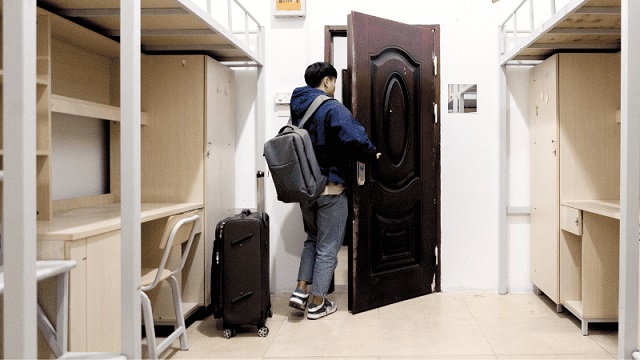Education
Bad student visa policy is no solution for bad student visa policy

From the MacDonald Laurier Institute
By Ken Coates
Making matters worse, a Statistics Canada report released in November of 2023 found that the number of postsecondary students actually enrolled at Canadian Universities was 20% to 30% smaller than the total number of individuals with international student visa’s.
Post-secondary education is in turmoil, thrust into the headlines by the Government of Canada’s decision to cut back on international student visas and work permits. The near panicked response by colleges and universities across the county has attracted attention. The federal decision is poor public policy, with flawed timing, significant negative impacts, and potentially serious long-term implications. But the ‘solutions’ implemented in January 2024 are a classic example of using bad policy to address bad policy. The fallout from this mélange of policy decisions could severely damage Canadian post-secondary institutions and the Canadian economy.
Governments, colleges, and universities have come to rely on international students, now numbering close to 1 million in Canada, particularly their tuition fees and the money that they bring into the country. The tuition fee revenues freed governments from the obligation to provide adequate funding to post-secondary institutions. Colleges and universities, for their part, used international student funding to avoid difficult, painful decisions related to the level of provincial support (the territories are not strongly affected by these processes).
The current controversy reflects more than a decade of poor and ineffective federal policies. Canada opened the gates for immigration, reaching unprecedented levels of refugees, formal immigrants, and hundreds of thousands of international students. Making matters worse, a Statistics Canada report released in November of 2023 found that the number of postsecondary students actually enrolled at Canadian Universities was 20% to 30% smaller than the total number of individuals with international student visa’s. Pointing to significant abuse of the study permit system, the report states, “It is unclear whether [the international ‘students’] stayed in Canada and, if so, what their main activities were.”
Our rapidly rising population is now blamed, not always accurately, for a serious national housing shortage and sky-rocketing prices, particularly in the major cities. The international student debate highlights the shocking shortcomings of the nation’s approach to housing and the absence of a thoughtful plan for population growth and rapid urbanization.
Bad federal policy is more than matched by poor provincial decisions, particularly in Ontario. The Liberal and Progressive Conservative administrations in Ontario have underfunded colleges and universities, dramatically so, relative to the other provinces and territories. Frozen tuition fees only added to institutional fiscal challenges. Several provinces, again led by Ontario, doubled down by authorizing many for-profit private colleges, most operating in league with public universities and colleges, to recruit international students. At the provincial level, the influx of international students, coupled with high tuition fees, masked the deficiencies of provincial funding, leaving underlying financial challenges unaddressed.
Colleges and universities had bad policies of their own. Without the government funding to meet their salary, administrative and capital costs, post-secondary institutions became addicted to international student fees, the crack cocaine of advanced education. Dozens of colleges and universities, enrolled thousands of international students, feeding the bottom line but increasing the reliance on international students and high tuition fees. They assumed, over-optimistically, that the steady flow of international students would never slow, let alone stop. They are now paying the price for that miscalculation.
Some institutions, particularly small institutions in northern and small-town locations, eve established satellite facilities in big cities to capitalize on strong student demand and to supplement small and stagnant enrollments on the home campus. International students and satellite operations were lifelines for institutions that would otherwise be in severe difficulty.
The Government of Canada’s response to the convergence of multiple bad policy streams consists of additional bad policy decisions. International student visas have been slashed by 35% and student-friendly work permit arrangements have been cut back dramatically. Canada’s once wide-open doors for international students have been partially closed. A carefully cultivated reputation for being receptive to foreign students has been degraded, if not dismantled, in one quick federal move.
The federal policy, announced with seemingly little coordination with provincial authorities and institutions, is a plainly political move, an urgent step taken by a Liberal government reeling in the polls. The decision was released in January 2024, at a key stage in the international student cycle. Colleges, public and private, are vulnerable to dramatic shifts in enrollment and they now face catastrophic losses of income. The implications go much further. Residences will want for students and employers of the eager international students will struggle to find replacements. Many college and university faculty and staff, particularly vulnerable short-term and sessional workers, will likely lose their jobs. And the national economy will lose out on a big portion of the billions of dollars spent annually by the international students.
The problem has been years in the making. The government may have been trying to make up for lost time but the hasty federal decision has already had an impact. Colleges and universities are already reporting sharp drops in applications. The message that Canada is no longer friendly for international students is out globally. The damage to student enrollment might be greater than anticipated.
A more appropriate approach would have been to announce a gradual reduction, starting in 2025, giving the colleges and universities time to adjust to a potential fiscal disaster. Another sensible alternative could have been to take aim at the abuse of the student visa system and to ensure those who entered the country under a study permit were actually enrolled in and attending classes. Bad policy often comes from knee-jerk reactions to political processes; good policy takes careful thought and, often, time.
Canada’s large international student recruitment industry brought billions of dollars into the Canadian economy. Thousands of students worked while they studied and made successful transitions to permanent resident status. Many people who came to Canada as high fee-paying students have become Canadian citizens and taxpayers. The students followed the rules, as did the colleges and universities that capitalized on clear and long-standing government policy. The federal and provincial policies may have been poorly designed and inappropriate, but governments set the parameters and expectations and shouldn’t punish others for their shortsightedness.
Bad policy, to be succinct, is no solution for bad policy, but that is what is happening to international student education in Canada.
Ken Coates is a distinguished fellow and director of Indigenous affairs at the Macdonald-Laurier Institute and a professor of Indigenous governance at Yukon University.
Education
Our sweetest success yet: Smile Cookie Campaign breaks record

Just when we thought our smiles couldn’t get any bigger – they did! And we have the Red Deer community to thank for their overwhelming support.
We are so excited to share the total from the Tim Hortons Smile Cookie Campaign this past spring…and it’s very impressive. In fact, it’s an all-time record, and we couldn’t be more grateful.
Over the long-week campaign held April 28-May 4, Red Deerians indulged in a lot of cookies – $80,773 worth! These funds will go directly to helping struggling readers become readers of potential through Reading College, a project of The Foundation for Red Deer Public Schools.
Reading College, held each July, provides students with identified reading gaps an incredible summer experience that builds their skills, confidence, and love for reading. Students leave the program with stronger reading and writing abilities, and a solid foundation for success in school and life. Now in its 14th year, 1,000 students have graduated from Reading College.
“We continue to be amazed by the generosity of our community and the partnership with Tim Hortons,” said Kristine Plastow, Board Chair for The Foundation for Red Deer Public Schools. “These dollars directly impact kids who need extra support to become confident readers. The difference this program makes is life-changing.”
Tanya Doucette, Tim Hortons Restaurant Owner in Red Deer, said it’s incredible to see what can happen when a community comes together. The simple act of purchasing a cookie by so many amazing guests, makes a huge difference for young students right here in Red Deer.
“This record-breaking year shows how much our guests care. We are so pleased to support Reading College and help give students the tools they need to thrive,” she said.
Red Deer
Red Deer Student honoured with Chief Youth Courage Award

When you meet Brayden Chenier, a Grade 8 student at GH Dawe School, it’s clear why he’s been chosen to represent youth across Alberta. Brayden is the proud recipient of the Integrated School Support Program Provincial (ISSP) Chief Youth Courage Award, presented by the Calgary Police Youth Foundation, in recognition of his resilience, leadership and commitment to his community.
The award celebrates students who demonstrate courage and dedication to becoming a responsible and caring citizen, especially within a diverse school and community, and was presented earlier this spring at the Calgary Police Awards Gala. As part of the honour, Brayden will now serve as a youth ambassador, helping to raise awareness about child and youth crime prevention, education, and intervention programs across the province.
“It’s pretty surreal that I will be all over the province for a year,” said Brayden. “I am looking forward to helping out in the community.”
Brayden has been part of the ISSP program through GH Dawe School since 2023 and has benefited greatly from the support offered.
With the support of the mental health professional, Brayden has been able to successfully navigate a variety of challenges in his life including coming to terms with his disability and navigating a tragic loss in his life.
Born with clubfoot, Brayden has never let his physical disability stand in his way. He is an avid athlete in a number of sports including hockey, basketball, golf, track, volleyball and soccer. His goal is working towards becoming an athlete in the Paralympics.
Brayden was nominated by GH Dawe School Counsellor Amy Johansson, who described him as a compassionate, kind, hardworking, and honest person who is driven and motivated to be his very best at all that he attempts.
She added that within the GH Dawe School community, Brayden is a highly respected citizen by all students and staff. “He is highly committed to sports connected to our school, as well as sports outside of our school community. Brayden works diligently at his academics. And is so very helpful and caring, always. Brayden works to overcome a list of things that he will not allow to hold him back.”
GH Dawe School is part of Alberta’s Integrated School Support Program – a child wellness initiative aimed at improving academic performance and the overall well-being of students. The program supports schools like GH Dawe with services to meet the diverse needs of students and families.
As he takes on his role as a provincial ambassador, Brayden continues to be a role model for his peers and a reminder of the power of perseverance and community support.
-

 Crime1 day ago
Crime1 day agoHow Chinese State-Linked Networks Replaced the Medellín Model with Global Logistics and Political Protection
-

 Aristotle Foundation2 days ago
Aristotle Foundation2 days agoWe need an immigration policy that will serve all Canadians
-

 Addictions1 day ago
Addictions1 day agoNew RCMP program steering opioid addicted towards treatment and recovery
-

 Business1 day ago
Business1 day agoNatural gas pipeline ownership spreads across 36 First Nations in B.C.
-

 Business14 hours ago
Business14 hours agoEU investigates major pornographic site over failure to protect children
-

 Courageous Discourse1 day ago
Courageous Discourse1 day agoHealthcare Blockbuster – RFK Jr removes all 17 members of CDC Vaccine Advisory Panel!
-

 Health1 day ago
Health1 day agoRFK Jr. purges CDC vaccine panel, citing decades of ‘skewed science’
-

 Censorship Industrial Complex1 day ago
Censorship Industrial Complex1 day agoConservatives slam Liberal bill to allow police to search through Canadians’ mail

